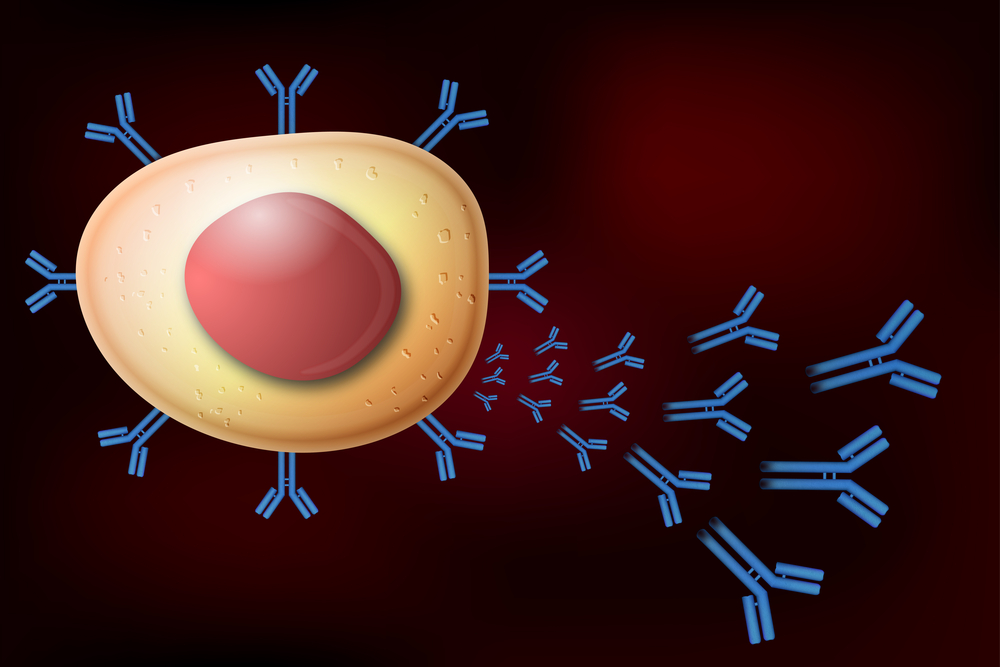BerGenBio AS’s BGB324, an inhibitor of a protein involved in tumor immune evasion, can enhance the effects of immune checkpoint inhibitors — such as anti-CTLA-4 and anti-PD-1 — in aggressive adenocarcinomas, according to recent preclinical data presented by the company.
The findings were presented in a poster at the 2nd International Cancer Immunotherapy Conference: Translating Science into Survival, held Sept. 25–28 in New York.
Certain types of cancer cells are particularly resistant to immune surveillance, a feature often linked with the expression of specific molecules that hinder immune cells in recognizing and attacking cancer cells with these molecules. The PD-1 and CTLA-4 signaling pathways have recently emerged as promising targets for immunotherapies that restore the ability of immune cells to fight cancer cells.
But the researchers demonstrated that such therapies also induce the expression of the AXL protein by the tumor cells, likely limiting the efficacy of anti-PD-1 and anti-CTLA-4 therapies.
AXL is a protein that helps cancer cells in two ways. First, it is an important regulator of the tumor cell capacity to migrate and invade more profound layers of organs. Second, it is considered a key suppressor of the body’s anti-tumor immune response, which allows cancer cells to resist and survive.
By specifically inhibiting this protein, BGB324 aids the immune system in resisting AXL, rendering cancer cells more exposed to immune responses. This early study’s promising results may pave the way for the use of BGB324 in combination with cancer immunotherapeutic agents, as the inhibition of AXL may help to enhance their efficiency.
“We believe this strong new preclinical data clearly demonstrates the rationale for combining BGB324 with [specific immune system] inhibitors to treat aggressive cancers,” Richard Godfrey, CEO of BerGenBio, said in a news release. “This study shows that these inhibitors actually increase AXL expression that supports immune evasion. Treatment with BGB2324 counters this, increasing tumor [susceptibility] and promoting the anti-tumour response.”
Currently, BGB324 is the only selective AXL inhibitor undergoing clinical trials. This drug is under evaluation for the treatment several diseases, such as acute myeloid leukaemia (AML), as a stand-alone agent or in combination with DepoCyt (cytarabine) (NCT02488408), and non-small cell lung cancer (NSCLC), alone or in combination with Tarceva (erlotinib) (NCT02424617).


